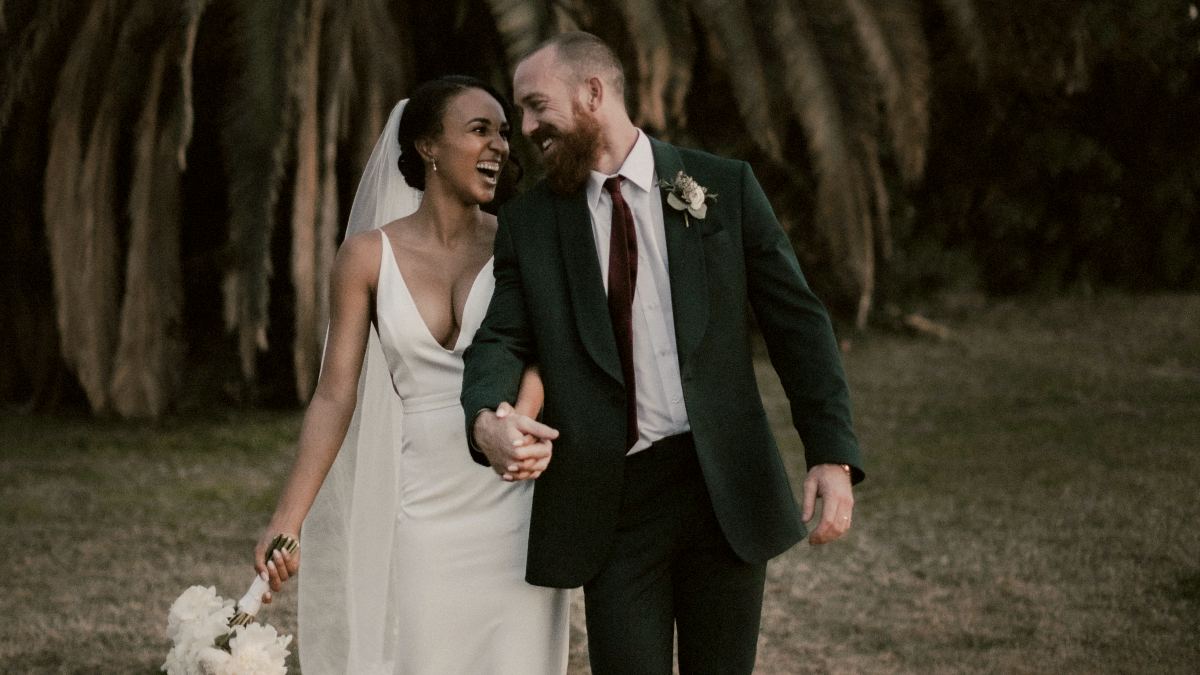
The 2 Kinds Of Mindsets That Motivate Marriage
Is marriage something you dream of, or a task that needs to be completed?

By Mark Travers, Ph.D. | September 23, 2024
Research published in the Journal of Family Issues shows that people generally fall into one of two groups based on their attitudes and timelines for marriage—marriage "naturalists" and marriage "planners."
These mindsets reveal just how differently people approach one of life's most significant commitments, often shaping not just the when, but the how and why behind their decisions to marry.
Here are the two "marriage mindsets" that determine when a person makes this lifelong commitment to their partner.
1. Marriage Naturalists
Marriage naturalists view marriage as a natural and expected part of early adulthood. Once a relationship has endured for several years, getting married feels like the logical and inevitable next step. Once it fits into the timeline of their lives, it happens naturally, without extensive deliberation.
"We didn't really discuss (marriage) too much. I guess (marriage) just seemed like the next step. We had been dating 7 or 8 years, all throughout high school and college. I pretty much knew that she was the person that I wanted to spend the rest of my life with," explains a 24-year-old Iowan participant.
Researchers found that these individuals, largely from rural areas, follow a traditional, fast-track approach to marriage that mirrors societal norms from the mid-20th century. They suggest that this mindset is largely shaped by a socio-economic environment, where earlier marriage is feasible due to lower living costs and economic opportunities that allow for financial independence at a younger age.
"You know. He had a job, I had a job. We both felt stable with stuff so I guess we felt there's no reason to wait," says a 26-year-old Iowan woman, who got married at 22.
The tendency to marry earlier can also be viewed as a reflection of stability and structure in such communities, where marriage is not just a personal decision but a communal milestone.
As one 28-year-old Iowa woman put it, "around here, 24 is old to be getting married." This expectation can create a sense of urgency, and many naturalists marry simply because "it's time" or because they have been in a long-term relationship. To them, there's little need to "test" the relationship, as its longevity already proves its strength.
2. Marriage Planners
Marriage planners typically live in metropolitan areas and experience a less linear transition to adulthood.Unlike naturalists, planners typically do not marry early. For them, marriage isn't an immediate priority but something to be pursued after careful consideration and preparation.
Researchers found that for planners, marriage happens only after they've tested their relationship for compatibility and achieved certain personal, educational and professional milestones.
"I'm so busy with school and work that now I'm like I don't really have time for a relationship. I'd love to have one but I really feel I wouldn't dedicate myself enough to having one," explains a 25-year-old San Diego man working full-time.
Planners also emphasize waiting to develop a "marriage mentality." This represents a shift from focusing on individual ambitions to embracing the shared responsibilities of a committed partnership.
"I feel like I have growing up to do individually and together before we're able to get married or have children," explains one 24-year-old New Yorker, who believes her boyfriend is "the one" for her but wants to wait for marriage.
Committing to marriage often involves going through significant life experiences together, such as cohabitation, navigating challenges and making joint decisions, which help couples evolve from an individual "you and me" to a unified "us."
Many marriage planners also delay getting married because they don't feel ready yet. This readiness is often defined by financial security, career satisfaction and emotional maturity.
"I think I'd be terrified about getting married at this point. It's something I want to do, but I don't necessarily know if it would make our relationship stronger or better. I would just like to live together, then we could spend more time together and that would be the best thing," a 30-year-old New York woman shares. Cohabitation, for many planners, serves as a "dress rehearsal" for marriage— an opportunity to deepen their bond before taking that final step.
The planner mentality is shaped by the demands of modern life, where marriage seems incompatible with other pressures of adulthood, such as juggling higher living costs, work, school and other priorities.
Marriage planners also grapple with the fear of divorce and high expectations for what marriage should be. In this mindset, rushing into marriage could jeopardize its long-term viability.
"Marriage is something you earn. If (she) graduates and (I) graduate, you can start working and we can afford (a wedding) and that's when you get married. It's not just because we have a child and all of a sudden we need to go out and do it," explains a 23-year-old San Diego man raising two children with his girlfriend.
"For marriage planners, a wedding only occurs after one has become an adult, and each partner has built lives as individuals separately, but for marriage naturalists, building a life together as a couple endures as the best way to create a genuinely mature and grown-up life," the researchers explain.
Whether you're a naturalist, planner or somewhere in between, marriage is a deeply personal choice and reflects your unique values, beliefs and vision for the future. While some may trust the organic unfolding of love to make their decision, others find comfort in carefully mapping out their future. There's no "right" path to marriage—only the one that feels right for you.
Curious about your own beliefs around marriage? Take this test to learn more: Belief In Marital Myths Scale
A similar version of this article can also be found on Forbes.com, here.
